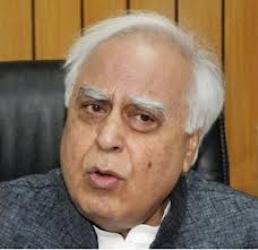Telecom Lead India: Idea Cellular, Tata Teleservices, Uninor, S Tel, Sistema Shyam Teleservices (MTS), Videocon and Etisalat will get back their spectrum license fee paid in 2008, if they have no criminal charge against them.

This was decided on Monday by the Empowered Group of Ministers (EGoM), headed by Finance Minister P Chidambaram.
If there is no case or action against telecom companies (obtaining licence in 2008), then the amount (licence fee of Rs 1,658 crore) will be refunded. The government will adjust the refundable fee against the final price of spectrum that these companies would have to pay at the end of the November auction of airwaves.
Out of the affected operators, S Tel and Etisalat decided to exit from Indian telecom market after the February 2 Supreme Court order.
Other operators are in the process of finalizing their spectrum bidding strategy.
The list of telecom operators who lost licenses:
- Unitech Wireless (Uninor) was granted 22 licences all over India
- Loop telecom was granted 21 licences all over India except Mumbai
- Sistema Shyam was granted 21 licences all over India except Rajasthan
- Tata Teleservices was granted three licences in Assam, Jammu and Kashmir and Northeast
- Etilsalat was granted 15 licences in Bihar, Madhya Pradesh, Andhra Pradesh, Delhi, Gujarat, Haryana, Karnataka, Kerala, Rajasthan, Mumbai, Maharashtra, Punjab, Tamil Nadu, Uttar Pradesh East and Uttar Pradesh West
- S Tel was granted six licences in Assam, Northeast, Bihar, Orissa, Himachal Pradesh, Jammu and Kashmir
- Videocon was granted 21 licences all over India except Punjab
- Idea Cellular was granted nine licences in Assam, Jammu and Kashmir, Karnataka, Kolkata, Northeast, Orissa, Punjab, Tamil Nadu and West Bengal
- Spice (Idea) was granted four licences in Andhra Pradesh, Delhi, Haryana and Maharashtra.
On Monday, EGoM also decided to recommend to the Cabinet a one-time fee on existing telecom operators for spectrum they hold beyond 4.4 MHz.
Mobile operators unwilling to pay the additional fee will be allowed to relinquish the excess spectrum beyond 4.4 MHz. Rejecting Attorney General G E Vahanvati’s suggestion that a one-time fee should be levied retrospectively from July 2008, the panel suggested imposing one-time fee from the day the Cabinet decided the matter.
Companies willing to retain excess spectrum will have the option of making staggered payments in yearly installments. The government is expected to raise about Rs 27,000 crore from the one-time fee.
The move to charge one-time levy on telecom companies holding excess 2G spectrum will affect Bharti Airtel, Vodafone, BSNL, Idea, Aircel and Reliance.
The government is likely to get Rs 30,000 crore bonanza from this decision. The Rs 30,000 crore windfall will help the government meet the Rs 40,000 crore target set from spectrum allocation for the current fiscal.
Any GSM operator holding over 4.4 mega hertz spectrum and CDMA players with more than 2.5 MHz of radiowaves would have to pay the penalty.
Times of India reported that BSNL will have to shell out Rs 6,400 crore, while MTNL’s liability will be around Rs 4,750 crore. The combined liability of Rs 11,150 crore is less than CAG’s estimate in 2010 which had pegged the value of excess spectrum with the two public sector companies at almost Rs 14,000 crore. Bharti, Vodafone and Idea will have to pay large sums, with a meagre burden on Reliance and TTSL, which entered the business late.
All the existing players were allocated pan-India permits with 4.4 Mhz of airwaves frequencies at price of Rs 1,658 crore but new telecom operators, which will have to participate in auction to get spectrum, will have to pay a minimum of Rs 14,000 crore for similar set of airwaves.
“If the Cabinet meets on October 16, we will try that the Cabinet takes a decision on all issues. We are trying to resolve all these issues before October 19,” said telecom minister Kapil Sibal.
Last date for submitting application for participating in spectrum auction is October 19.
